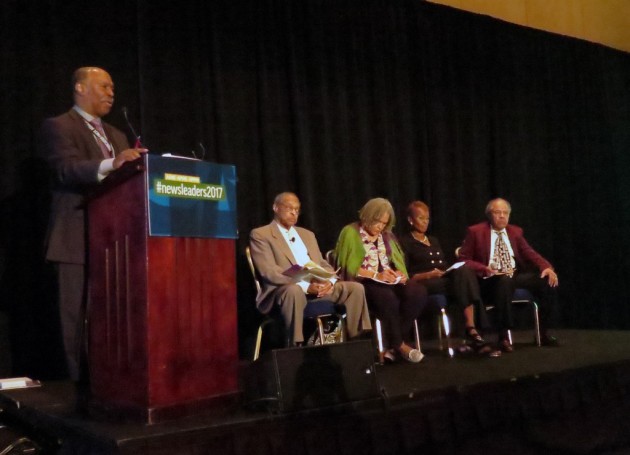School at Morris Brown College is back in session this year asthe school works to rebuild itself. Just last week,registration for fall classes began for at least 150 students.
In April 2003, the college had itsaccreditation rescinded by the Southern Association of Colleges andSchools due to exorbitant debts and financial fraud. For students at the college,the loss of accreditation meant no federal financial aid, forcingthe majority of the student population to leave the school.
Nevertheless, students like Tabitha and TamaraJones will return to the college. Last year, they transferredto another school when Morris Brown ran into financialtrouble. Though the school is not what it was when they werefreshmen a year ago, the two chose to finish their studies atMorris Brown because of the school’s close-knitenvironment.
“I missed the attention you get at MorrisBrown,” Tabitha told the Atlanta Journal-Constitution. “Theyteach you about life.”
The 20 incoming freshmen will be the onlystudents in one of the campus’ five dormitories and they willdine in the Interdenominational Theological Center’scafeteria because there will not be enough students to operate thecollege’s dining hall, according to the AtlantaJournal-Constitution.
In the meantime, Morris Brown faces thechallenge of regaining accreditation—a task most schoolsnever win back.
Following the loss of accreditation, thestudent population has dropped to 77 from 2,700 a year ago. Now there are only 25 faculty members and 51 staff members oncampus from 170 faculty and staff members two years ago. There have been cuts within the public affairs and physicaleducation departments. Also, all athletics, including theschools Wolverines marching band, have been stripped, according tothe Atlanta Journal-Constitution.
President Samuel Jolley promised incomingfreshmen that the school will be accredited by the time theygraduate, but he said the school would not apply to regainreaccredidation until December 2007. In order to qualify,Morris Brown will have to prove it is operating debt-free and hascorrected all the problems set out by the accrediting agency in2002.
The commission’s executive director, James Rogers, said hemet with Jolley and the AME’s new bishop two weeks ago to talkabout Morris Brown’s progress.
“We felt very encouraged,” Rogers said.
However, some do not believe the school isworth saving.
“You can’t save Morris Brown just because it’sBlack,” said C. Miles Smith, an Atlanta radio DJ for WAOK-AM. “If the quality of education you’re getting is not good enough,what’s the sense of saving it?”



